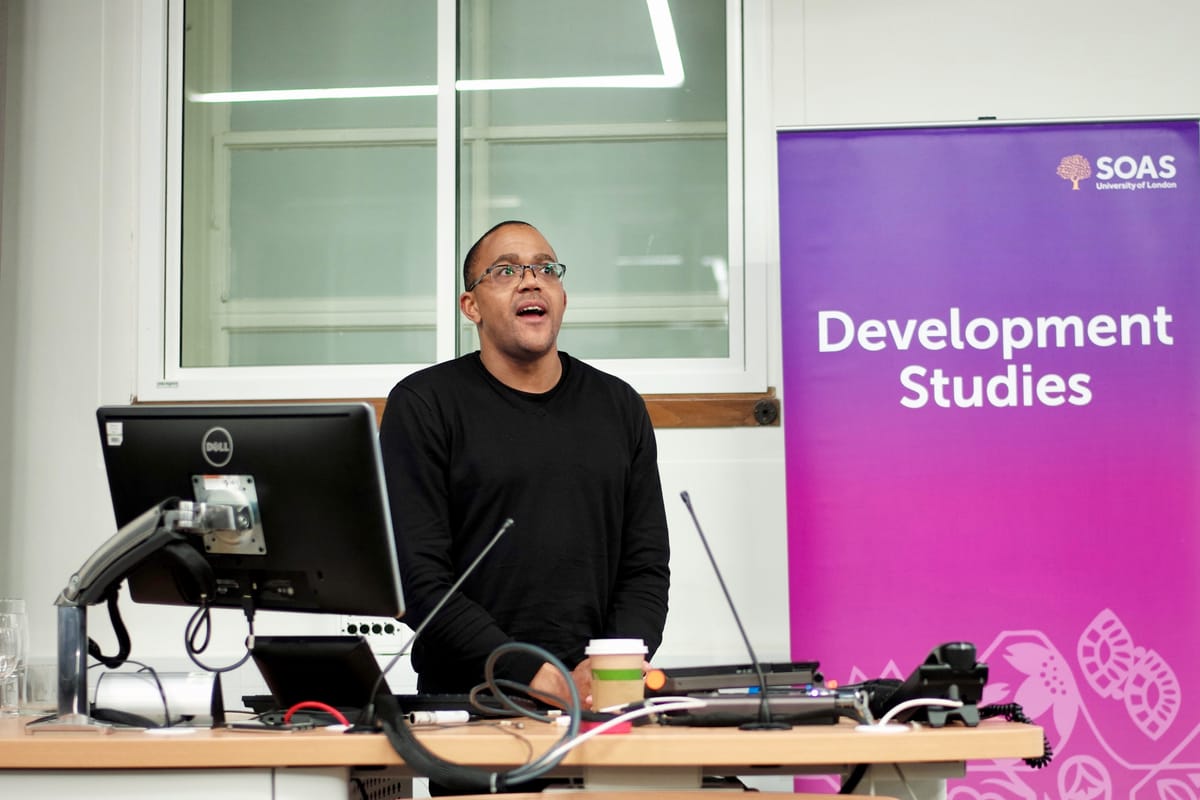An interview with Dr. Kehinde Andrews: Empire and Black Radicalism

Interviewed by Sumayya Hasan
Dr Kehinde Andrews is Associate Professor in Sociology, School of Social Sciences, Birmingham City University. In 2013, Dr Andrews published his first book “Resisting Racism: Race, Inequality and the Black Supplementary School Movement”. He is now Director of the Centre for Critical Social Research, founder of the Organisation of Black Unity, and Co-Chair of the Black Studies Association.
Here are a few of his views from the discussion of “The Global Politics of Black Radicalism”.
Sumayya Hasan: Is the idea of what the Empire is being lost or misunderstood by people?
Dr Kehinde Andrews: It is on purpose. There is a reason why it is that way: slavery for 200 years was said as abolished. The Act of the Slave Trade was abolished in 1807. That was the abolishment of slavery not the trading. Mostly because they were terrified after the Haitian Revolution, they were mostly African born people and were scared of an uprising, but they kept slavery for another 30 years. In 2007 they celebrated in the newspaper the end of the West Indian slavery, not mentioning Britain’s role in slavery, because it is seen as abolishing slavery the saviour of the people. Because it is Britain and you cannot talk about these things. This is how Britain sees itself, even when David Cameron gave a speech about why Scotland should be independent he had mentioned that it is because Britain has ended slavery. Is it really what happened? Britain is the country that benefited the most from slavery, art involved in it late, it did it well and did it officially.
SH: Is Twitter ruining the political dialogue?
KA: It can be, but one of the worrying things about Twitter is the lack of research, it hasn’t got any education there, the study there… why do I know what I know? That is because my parents had two big books about politics on the shelf, that’s how I know. But it seems that has disappeared. It is now 240 characters, with no research. There was an African American academic who told me the story in his college, where a guy had an ‘’Assata taught me’’ t-shirt. So he asked what did Assata teach you? He’d said ‘’I don’t even know who she is!’’ he just had the t-shirt. Partly it seems bad to say that’s what’s happening, I think hashtags are not helping. Maybe watch videos, but no one is reading and studying anymore and it’s important.
SH: Does this delegitimise the debate?
KA: The study is really important, if you’re not studying you’re not revolutionary and I think we’ve kind of lost the study element of it. It’s good that people are having a convo, at least having them. But to a level it is lacking.
SH: Is black identity commodified?
KA: A quote a used in the book “Malcom” says “this word revolution is being misused”. If it was misused then, by God it’s misused now – Beyonce! One of my chapters starts with Beyonce and the Superbowl (sigh) I got a lot of criticism because I had written a piece in the Independent. It came across as if I was trying to police her. I don’t have a problem with Beyonce! I actually watched her live. I had absolutely no reaction to it, its just that Beyonce was doing what Beyonce does. The next four days all it was “Beyonce is so radical she is so revolutionary” I was like what do you mean? The Superbowl is the highest point of commercialism in the entire world, it was all practiced and advertised, even the way she represented the Black Panthers, it was all prepped up and a sexualized image of the ‘sassy black woman’ that’s not the Black Panthers, that were around for a long time. So it’s a particular representation of radicalism that’s disrespectful of black women. Black women were 60% of the Black Panthers, they had a uniform, then come with the uniform! You know you couldn’t do that. Because this is a shirt and jacket and wouldn’t fit the narrative. What Beyonce did was market her own, it sold her lots of copies. And that’s the perfect example of going from proper revolutionary culture to this.
SH: Comment on the new movie “Sorry to Bother You” and how black people navigate the workspace.
KA: I work in universities, one of the whitest places you could ever work in. You have to conform intellectually in the way you dress and speak, that’s one area where when you look at progress, there ain’t no progress! if you look at the top, top, top jobs there’s just white people! A lot of that is cultural, and cultural capital. You have to conform, be the right way, talk the right way I see it all the time in universities. So I progressed quite far in my career, even if management is the next level I ain’t never gonna do it! Because all the managers are white. I can’t stand it! I can’t do it! To do it would have to be completely changing me, you can’t do this stuff you literally can’t do it. What we end up doing is changing ourselves that’s why it don’t make a difference if it’s a white or black. A manager, is a manager is a manager! A manager is a white person and they do what managers do. Black or white. They’d introduced a head of department, she’s a manager, a black guy came in for an interview, laid back, dreadlocks, perfect candidate, she’s talking and asking questions, no problems. The feedback, I’m not joking of this white woman was “he was really aggressive’’ (sigh) What are you talking about???
Photo Credit: Jai Bhatai



